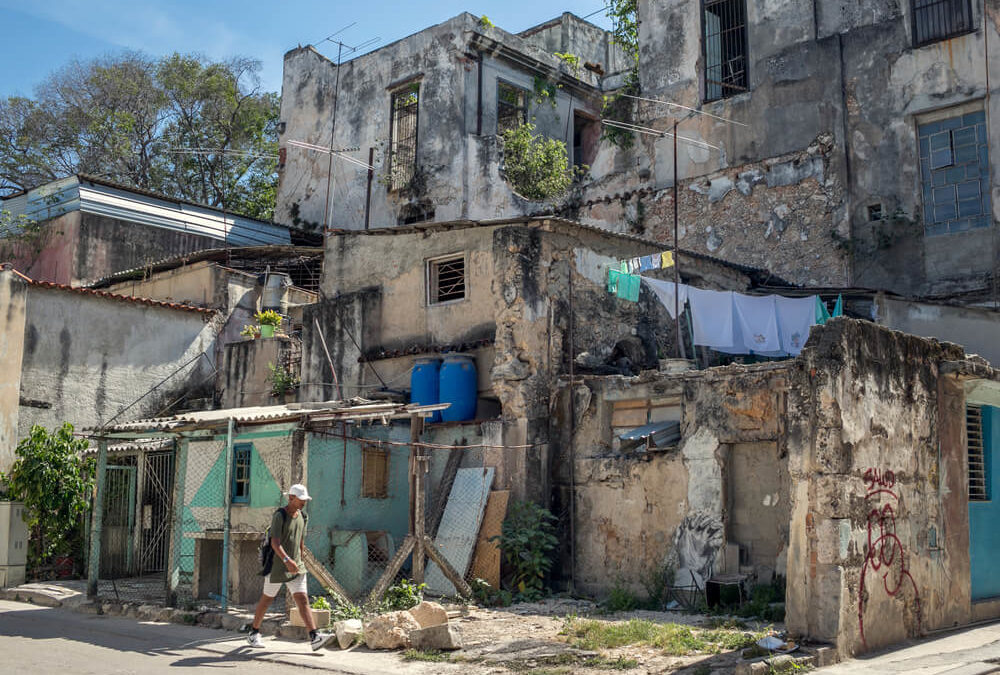Far too many far-left Democrats are pining for socialism here in the United States. In fact, socialism has gained so much popularity, Bernie Sanders, a Democratic Socialist who just so happens to be a millionaire, is one of the favorites to win the Democratic primary to run for the presidency.
The house where I was born in Communist Cuba had a dirt floor, a bathroom hole-in-the-ground, which we shared with six other families, and a zinc roof that left us unbearably hot in the summer and shivering in the winter.
“Free education,” and “free health care,” they say.
Cuban refugee Enrique Padron, the southwest Florida director for Rep. Mario Diaz-Balart, R-Florida, penned a recent op-ed for the New York Post, telling everyone exactly what that “free education” and “free health care” really costs — your freedom and a life in squalor making pennies an hour at your job.
Per the New York Post:
Let me tell you about socialism as I lived it under the Fidel Castro regime.
The house where I was born in Communist Cuba had a dirt floor, a bathroom hole-in-the-ground, which we shared with six other families, and a zinc roof that left us unbearably hot in the summer and shivering in the winter.
We had no running water, no refrigerator and no door in the back of the house. We cooked with charcoal. My mother raised four boys by herself in that “house,” working 12 hours a day to earn 160 Cuban pesos, or approximately $6, a month.
Why didn’t we fix it? In addition to the meager income, we had no access to hardware stores to buy nails or cement to fix our humble house. In fact, the local member of the National Assembly was the only person authorized to approve whether we could buy a bag of cement or a roll of roof paper — if they were available.
We couldn’t buy these simple materials without that precious piece of paper. Can you imagine going to your congressional representative to ask for permission to buy a box of nails? Or roof tiles? Or roof paper? It seems unthinkable in the United States. But in Cuba, where we lacked the necessities of life, we had to. And when we complained, the authorities scolded us to be grateful for free education and free health care.
In Cuba, it is illegal to speak against the government or complain about living conditions. We were prohibited from speaking with local media, but the journalists were state employees and wouldn’t publish our stories anyway. We couldn’t express our unmet needs and were reminded that we shouldn’t complain anyway, because we were promised — you guessed it — free education and free health care.
In Cuba, doctors make the equivalent of 25 cents an hour and teachers 21 cents an hour. Pharmacists earn eight cents an hour.
In Cuba, there is no right to free speech and virtually no independent media.
There are no free, fair, multiparty elections. In fact, there is just one political party (Communist), and only members of the Communist Party may run as candidates for any office. But we were told we couldn’t object to this system, lest we lose our free education and free health care.
Two of my brothers were sent to fight in Angola when I was a boy. After years of risking their lives for a strange cause, they came back to Cuba to find out that their mother and little brother were living under worse conditions than before they left. They learned that the promise of going to another country to fight for the “big, beautiful future of socialism” was just a big lie.
In Cuba, if you dare to yell something true — like “Fidel and Raul are dictators!” — you could spend many years in prison. Dictatorship is another price we had to pay for free education and free health care.
I desperately needed something more than the promises of free education and free health care. I knew that I needed freedom — freedom to speak my mind and vote my conscience. It was worth the risk of being eaten by sharks than to continue living a life with no purpose and no freedom.
On August 16, 1994, I decided to get into a boat with 20 other Cubans in search of a future.
One of my two brothers followed me to the United States, also in a raft, nearly dying of thirst and hunger during the journey. My other brother is still awaiting the visa I filed for him.
Throughout their ordeals, my brothers have been promised free education and free health care.
After arriving in the United States, I worked as an international sales manager, owned a restaurant, hosted a radio program and authored two books. Today, I work for a member of Congress. None of those opportunities would have been possible for me in socialist Cuba.
I wish that one day I might have a conversation with some of these young American socialists, who have no experience with actually existing socialism. They like to think they can have democracy and a socialist economy. But everywhere it’s been implemented, public ownership of the means of production has led to political repression.
Not least in my native Cuba, with its promises of “free” cradle-to-grave services.
I chose so much more than the promise of “free.” I chose freedom.



